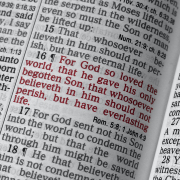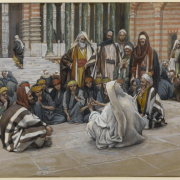What Does the Old Testament Say About Jesus?
This question could be asked in another way: what does the Old Testament say about the Messiah, and does Jesus fit that description? From the moment that we, the Jewish people, began to be a distinct nation, God planned to send the Messiah to us. In Genesis 12, God made a promise to Abraham to give us the land of Israel, to make us a great nation, and to bring blessing through the Jewish people. God promised to bless Abraham, his descendants, and the whole world. There have been many ways that God has brought blessing to the world through the Jewish people, but perhaps the most significant gift the Jewish people have given to the world is the Messiah, the “Anointed One,” whom we believe is Yeshua—Jesus!
What were the “Messianic qualifications” detailed prophetically in the Hebrew Scriptures? Let’s look at a few of these.
He would be born to a virgin woman (Isaiah 7:14) in the town of Bethlehem (Micah 5:2). He would come through the tribe of Judah (Genesis 49:10) and be a descendant of King David (I Chronicles 17). He would be a prophet like Moses (Deuteronomy 18:15–18) and a miracle worker who would heal the blind, the deaf, and the lame (Isaiah 35:5–6). These are all very specific and improbable prophecies for one man to fulfill, but Jesus fulfilled them all. He was born in Bethlehem to the virgin Mary (Matthew 1:18—2:6). Jesus is a descendant of King David through Judah (Matthew 1). He was a prophet like Moses (Acts 3:22), and Jesus healed the blind (Matthew 12:22), the deaf (Mark 7:31-35), and the lame (Matthew 15:30) just as the Old Testament said the Messiah would!
Those prophecies paint a picture of the Messiah’s lineage, but why did the Messiah come? How would he be a blessing to Israel and the entire world? Isaiah answered this question for us in Isaiah 52:13—53:12, where he talked about the Servant of the Lord, the Messiah. The servant would be unjustly condemned for crimes he did not commit (Isaiah 53:8). He would then be beaten until “his appearance was so marred, beyond human semblance” (Isaiah 52:14). Ultimately, his suffering would lead to his death (Isaiah 53:8), but that is not the end of the story. He would come back to life (Isaiah 53:10)! As Isaiah predicted, Jesus was unjustly condemned (Matthew 27:11–26), severely beaten (Matthew 27:26), and suffered a brutal death by crucifixion (Matthew 27:32–50). He also did not remain dead but resurrected from the dead on the third day (Matthew 28:1–10)!
Jesus is the only one who fits the description of the Servant in Isaiah 53. Isaiah goes further to tell us why the Servant, the Messiah Jesus, came: he came to be “stricken for the transgression of my people [Israel]” (Isaiah 53:8). He bore the punishment for the wrongs committed by others so they wouldn’t have to suffer the punishment themselves and could be made right with God.
This reason for the Messiah’s coming is exactly what Jesus’ follower, Peter, explained in Acts 3. Referring to the fulfillment of prophecies like Isaiah 53, Peter said, “But what God foretold by the mouth of all the prophets, that his Messiah would suffer, he thus fulfilled. Repent therefore, and turn back, that your sins may be blotted out” (3:18–19). Peter called for his listeners to turn from their sins and believe that God sent Jesus to suffer for our sins and defeat death. It is through our belief in the Messiah Jesus, and through our repentance of our sins, that Jewish people and people all over the world may have their sins forgiven and receive eternal blessing through the Jewish Messiah.
Our prophets prophesied hundreds of years before the events happened, and their predictions came true when Jesus walked the earth. Keep searching and you will find him, especially if you take the time to read the story of his life in the four Gospels in the New Testament, authored by disciples and followers who knew him best. We suggest that you start with the Gospel of Matthew!




 Public Domain
Public Domain


